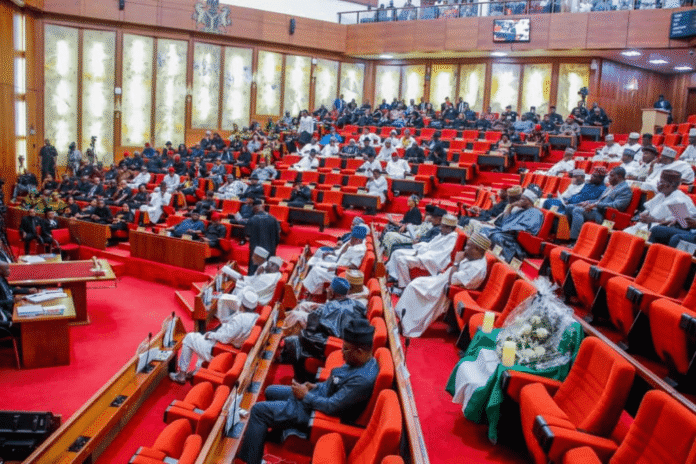A bill promoting the use of locally produced vehicles by Nigeria’s ministries, departments, and agencies (MDAs) has successfully passed its second reading in the Senate. Sponsored by Senator Patrick Ndubueze, representing Imo North, the Local Automotive Industry Patronage Bill, 2025, seeks to encourage the purchase of Nigerian-made vehicles and curb the nation’s dependency on imported automobiles. The bill was introduced in October 2024 and passed its first reading shortly thereafter.
During the debate, Ndubueze highlighted Nigeria’s overreliance on foreign cars as a significant contributor to the weakening of the naira and the deterioration of local industries. He argued that any nation striving for economic growth must implement policies that promote local production. He pointed out the detrimental impact of continuous imports on the nation’s balance of trade and suggested that supporting homegrown industries could reverse these negative trends. Ndubueze emphasized that Nigeria had failed to institutionalize the use of local brands and instead favored foreign products that offer no superior quality.
The senator also referenced the high number of automobile manufacturing licenses granted in Nigeria, noting that only a few companies remain operational due to infrastructure challenges and foreign exchange shortages. He questioned the country’s ability to stabilize the naira without reducing its dependence on foreign goods. Ndubueze proposed that at least 75% of vehicles purchased by public officials and civil servants should be locally manufactured, stressing that this step is crucial for safeguarding the economy, supporting the currency, and generating employment.
Furthermore, Ndubueze suggested that qualifying local manufacturers should meet specific criteria, such as employing at least 70% Nigerian workers and investing 75% of their research and development in the country. He cited China, India, and Malaysia as examples of nations that initially banned imported vehicles to nurture their domestic industries. These countries, he noted, now produce competitive vehicles, which Nigeria imports.
Senate Chief Whip, Mohammed Monguno, supported the bill, stating that it would offer legal backing to an existing directive from the Federal Executive Council (FEC) regarding the use of local products. He stressed that the bill would protect this policy from being overturned by future administrations. Deputy Senate President Barau Jibrin added that the bill would create jobs for Nigerian automobile engineers and attract more investors to the sector, ultimately strengthening the economy and stabilizing the naira.
The bill has been referred to the Senate’s Committee on Public Procurement for further scrutiny, with a report expected within four weeks. If passed, the law could mark a significant step toward the revitalization of Nigeria’s automobile industry.

